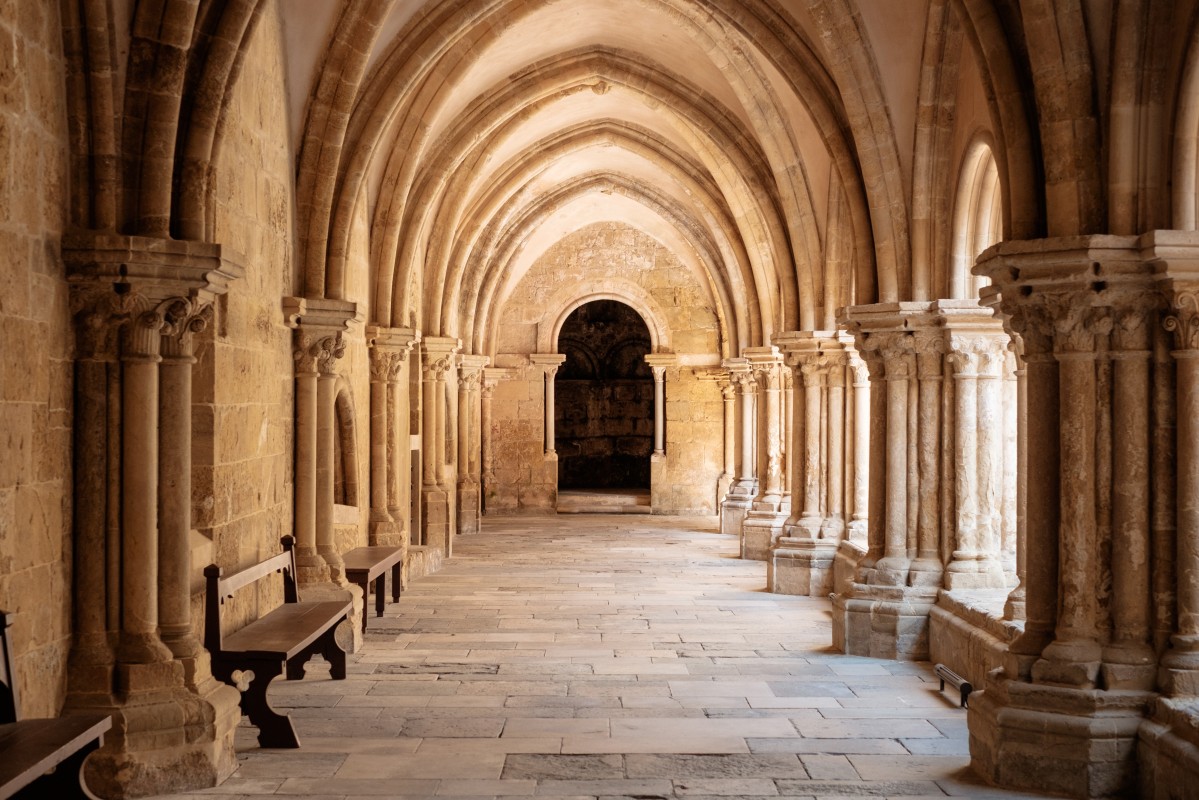If you are still reading this blog after that sentence, then let me commend you as someone after my own history-loving heart. But, if you are asking the important question, “So …why do I care?” I pray you’ll stick with me in this post and discover the incredible reasons why you, too, should pause to remember this world-changing occasion.
As the Founder of Redeemed Girl, I hope we are women who recognize that history is, indeed, “His Story.” God is the author of history. Therefore, as we look back on an event that occurred five centuries ago, we must recognize that God was at work then, as He is today, working all things for His good and His glory.
It is also my hope that anyone who identifies herself as a Redeemed Girl is someone who cherishes the Word of God, holds fast to the Gospel, and stands firm in her identity in Jesus Christ. If that is true of you, let me remind us that we owe an enormous debt to those who’ve gone before us, who fought and died that we might freely hold these beliefs. We can’t take for granted the privileges we hold dear without recognizing the ones who stood their ground so that we can enjoy them.
In order to appreciate this momentous historical event, I will address three questions: Who was Martin Luther? What was the Reformation? And finally…Why do we care?


Who was Martin Luther?
The man who would ultimately turn the world upside down first began as a law student. But while pursuing this degree, he faced a near-death experience and vowed to become a monk if God spared his life. Keeping his vow, Luther took holy orders. As a monk, Luther was so committed to pursuing holiness and righteousness as a means to earn God’s acceptance that he almost killed himself in his quest. Luther describes this vain and exhausting time with these words:
“I tortured myself with prayer, fasting, vigils and freezing; the frost alone might have killed me… What else did I seek by doing this but God, who was supposed to note my strict observance of the monastic order and my austere life? I constantly walked in a dream and lived in real idolatry, for I did not believe in Christ: I regarded Him only as a severe and terrible Judge portrayed as seated on a rainbow.”
Elsewhere he recalled: “When I was a monk, I wearied myself greatly for almost fifteen years with the daily sacrifice, tortured myself with fasting, vigils, prayers, and other very rigorous works. I earnestly thought to acquire righteousness by my works.”
If anyone in history ever tried to attain righteousness by good works, it was Martin Luther. The more he tried, the more he became aware of his own sin and failures.
Peace eluded him.
Fear engulfed him.
Rest evaded him.
It was during this time that he grew to despise God and feel that true righteousness impossible to achieve. Yet, Martin Luther did not give up. He pressed into the Scriptures, which was rare for a monk to do in that day. In God’s Word Luther found the key to unlocking the chains of legalistic fear and failure that held him prisoner. That key was found in the book of Romans where Luther read the Apostle Paul’s explanation of the Gospel:
For in the gospel the righteousness of God is revealed
—a righteousness that is by faith from first to last,[a]
just as it is written: “The righteous will live by faith. Romans 1:17
Here Paul explains clearly that the Gospel is a message of grace (meaning it is undeserved). It is the good news that we are made right with God (or righteous) by faith in Jesus Christ and not because of our good works or keeping the law. The Holy Spirit opened Luther’s eyes to see the beauty and freedom of the true Gospel. He did not need to beat his body or weary himself with endless striving. Why? Because, Jesus. Faith in Christ alone makes one righteous, not any legalistic hoop or piece of paper a false-teacher might sell. Our good deeds are a result of our salvation, not the means of our salvation. We obey, serve, and worship God as a response to His grace not to earn it. Through this revelation, Martin Luther realized the teachings and practices of the church in that day were in direct contrast to the Word of God.
“Luther came to realize that salvation was a gift for the guilty, not a reward for the righteous. Man is not saved by his good works but by trusting the finished work of Christ. Thus, justification by faith alone became the central tenet of the Reformation.” –Steven Lawson
Also around at this time, certain preachers were peddling what were known as “indulgences.” Essentially these were “get out of hell free” tickets. These false teachers traveled from city to city and sold “pardons for sin” and certificates to release loved ones from hell. These heretical indulgences essentially nullified the cross of Christ. After all, why would one need Jesus if they could pay a few coins and just buy forgiveness? Seeing clearly that this practice was not in line with Scripture, Luther called for a debate on this subject, which led him to nail his now famous 95 theses to the church door in Wittenberg.


To say that Luther was ticked off at the lies spreading through the church is an understatement. While he never meant to divide the church, he did use both pen and pulpit to expose heretical teachings. As it would happen, his writings would not remain concealed in his small German village. Due to the invention of the printing press, Luther’s teachings sparked a fire that spread across Europe, changing the face of the church and history forever.
The problem with Luther’s beliefs is that they defied the teachings of the Roman Catholic Church and the authority of the Pope. As one can only imagine, his statements did not sit well with the church leadership in Rome. Luther was demanded to recant or face excommunication or death. When forced to renounce his teachings, Luther faced his inquisitors and said:
“I cannot and will not recant anything, for to go against conscience is neither right nor safe. Here I stand, I can do no other, so help me God. Amen.”
—Martin Luther
“Here I Stand.” I simply get chill bumps as I read these words. I can’t imagine the boldness it took to stand against the forces assembled against him. One man facing off the Holy Roman Empire. At that time in history, there was no separation of church and state, which meant that all worldly powers were aligned against him. But, a force far greater than any in this world was with Luther. Therefore, in spite of all the pressures confronting him, Luther stood firm.
What was the Reformation?
Why did he stand? Because he knew God’s truth was worth the fight. He believed the purity of the Gospel was on the line. He also knew first-hand the fear, striving, and burdens one carries when attempting to earn God’s righteousness apart from grace. Because he cared deeply for the souls of humanity and knew he was on the side of truth, Luther chose to stand.
As a result, the Protestant Reformation was born.


In short, the reformation was a massive movement in which people looked at the Bible and asked, “What is truth?” The Reformers developed what would be known as the “Five Solas.” The five essential doctrines of the Protestant Reformation are as follows:
- Sola Scriptura (“Scripture alone”): The Bible alone is our highest authority.
- Sola Fide (“faith alone”): We are saved through faith alone in Jesus Christ.
- Sola Gratia (“grace alone”): We are saved by the grace of God alone.
- Solus Christus (“Christ alone”): Jesus Christ alone is our Lord, Savior, and King.
- Soli Deo Gloria (“to the glory of God alone”): We live for the glory of God alone.
When I first read this list, I thought, “Duh, of course.” But I read these “solas” from a vantage point five centuries removed. We can’t lose sight of how radical these teachings were in Luther’s day. Sure, these truths are the bread and butter of most of our churches now. But not so then. Each one addressed a key issue that needed reforming. We must stop and appreciate the fact that men and women died to hold fast to these truths.
Why do we care?
The reason I felt led to write on this subject stems from my love for Jesus and His church. When I say “the church,” I mean, of course, the one universal church of Jesus Christ which encompasses every race, language, and culture. Today, the church is comprised of many different denominations and traditions, and anyone who confesses Christ alone for salvation, is part of the universal Church. I stress this point because I know the events of the Reformation caused great divisions, but my hope in writing this post is that we would celebrate the benefits, stand firm in the principles, and find unity as Christ followers.
As Redeemed Girls, we may worship in Baptist, Catholic, Presbyterian, Anglican, Methodist, Lutheran and even non-denominational churches. The labels we wear don’t matter as much as much as the place Jesus Christ holds in our hearts. What is essential is that we are women who hold fast to the Bible as the basis for truth and test all our beliefs against it. I pray we are women of great discernment who examine the teachings we hear, books we read, and speakers we esteem against the unchanging council of God’s Word.
When I think of Martin Luther, I don’t imagine a perfect man. Yes, he was a sinner and needed redemption like the rest of us. While he was flawed, I do thank God for revealing truth to him and raising him up to stand for the purity of the Gospel in his generation. Just as Luther faced false teachers in his day who aimed to deceive people and distort the Gospel, so do we. We, too, must be bold enough to stand.
I promised at the beginning of this post I would answer the all-important question: Why do we care? We care because the Gospel of Jesus Christ is the foundation of freedom. The truth that we are saved by grace alone through faith is essential to experiencing the abundant life. The Gospel is our source of peace, joy, confidence, assurance, and rest. If we attempt to reach God via any other way, other than the undeserved grace found in Jesus Christ, we will end right back up in the same prison of striving, legalism, fear, and failure that once held Martin Luther. We must guard this truth, even in our own hearts, from any deception that sways us to hope in any anything other than Jesus for the salvation of our souls.
“The true treasure of the church is the most holy gospel of the glory and grace of God.”—Martin Luther
Marian Jordan Ellis









